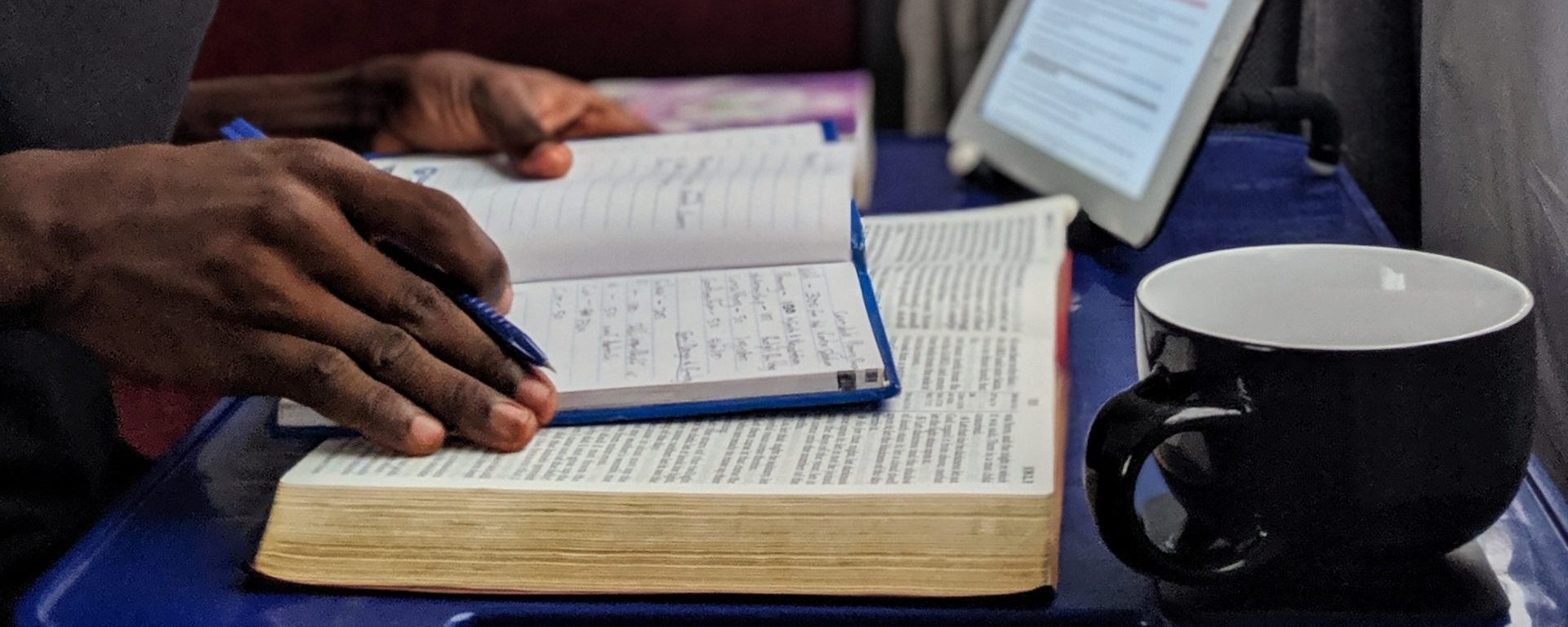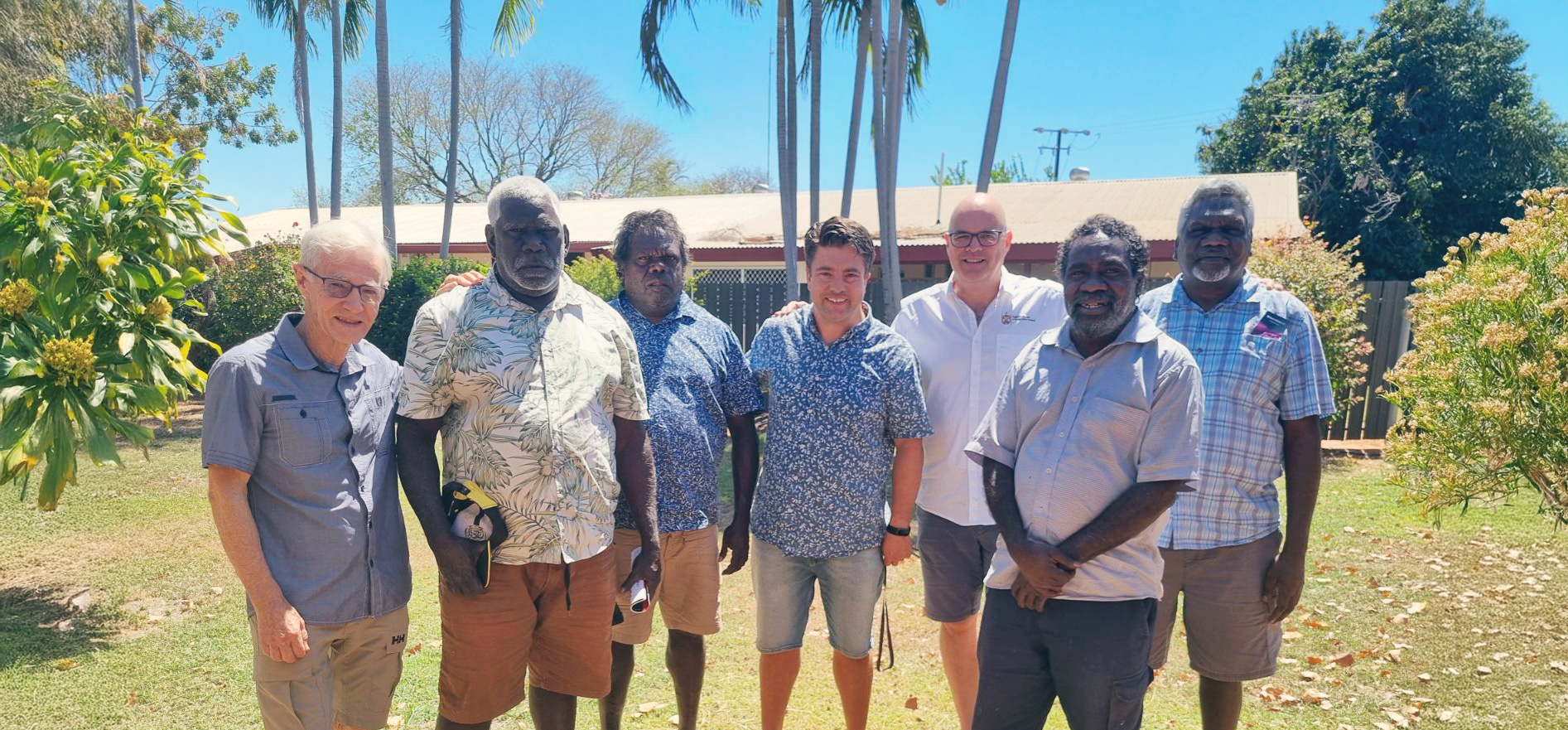Future-proofing the church?
CMS Missionaries Nathan and Diane Lovell serve at George Whitfield College (GWC) in South Africa, where Nathan is Director of Research. Here, he reflects on the unforeseen challenges of the last few years, and the best strategy for preparing the next generation of church leaders for whatever comes next.
“….that the servant of God may be thoroughly equipped for every good work.”
1 Timothy 3:17
The COVID-19 pandemic turned everyone’s lives upside down overnight.
Now that things have calmed down a little, we’ve all reflected with the benefit of hindsight on some decisions that we made at GWC. Some things we did were good. Some of them, probably, given what we know now, were a bit of an overreaction. And some of them were and are still being fiercely debated.
Here in South Africa, one of the very first theological discussions that emerged was whether church done online was actually still church. What about “meeting together” (Hebrews 10:25)? What about pastoral care? What about those who live in poorer areas and don’t have the internet capacity to ‘do’ church online? Is online church yet another privilege enjoyed only by those who have means? Some of my close friends thought moving church online to be a catastrophic concession. “Will the church ever recover?” we asked.
Unexpected dilemmas
The striking thing about these questions was the way they emerged overnight. No-one had ever really thought before about what we would do if a global pandemic made physical gatherings unlawful. It just wasn’t a question. And that made thinking through the answer very difficult when the need arose so suddenly.
There have been other new questions as well. Since Christians have an obligation to love our neighbour, should we take the vaccine? Should we talk about it in terms of ‘sin’ or is it a matter of civil liberty? Should churches forbid unvaccinated people from coming?
In South Africa, we had other challenges amid all of this too. The murder of George Floyd in 2020 (during COVID lockdown) re-invigorated a passion for social justice in our nation and the recognition that, 20 years after apartheid, things still aren’t as they should be. But now the church was being asked to think about these things in new categories. We began talking about ‘Critical Race Theory’, because it was everywhere in the media.
In 2021, still during the pandemic, there was mass civil unrest in Durban as thousands upon thousands took to the streets, looting and destroying whole suburbs in protest of the arrest of former president Jacob Zuma. Supply lines were cut, which meant that suddenly food became scarce in one of the largest urban centres in Southern Africa. As the church wrestled with the best way to get supplies to the many who found themselves hungry, we tried to think about how big a problem political corruption was, to what extent the problems were the lingering legacy of social injustice, and what the church should say about all of that publicly or from the pulpit.
Ready for anything
The point of all of this is that no-one saw any of it coming. If we had, then our undergraduate classes in ecclesiology would have had some discussions about church and gathering and virtual communities. But we didn’t. We might have done the research on Critical Race Theory decades ago, and begun thinking about to what extent it was a gospel-like response to issues, or to what extent it should be reframed in light of what Jesus has done. But we weren’t teaching about that either, because few people were talking about it before 2020.
And life is always going to be like this. Hopefully not as stressful! But we never will know what tomorrow’s challenges, debates, or issues will be. We probably won’t see them coming from far off. But we will still have to think Christianly, biblically, and in a gospel-centred way about them.
This is why, when we do theological education in Africa, or anywhere really, we don’t just want to tell people what the Bible means. We want to train them to read it for themselves. And we don’t want simply to give people all the answers to their current questions. Because they won’t be the answers to tomorrow’s questions.
We want to train people who, when faced with one of the many curve-balls that life throws, will instinctively go and open their Bible. And trust it. Rather than reaching for whatever solutions are floating around in the cloud of contemporary online society, we want people to remember that God so loved this crazy, messed-up world, that he gave his only Son to redeem it. And we want people to engage with the world around them on that basis.
That’s why theological education is hard. Because we don’t know what’s coming. But it’s also why it’s important. Because we don’t know what’s coming. And yet our sovereign God does know. So we’ll keep trusting his word to equip us, and the next generation of church leaders we’re training at GWC, for every good work.
![]()
GIVE
CMS missionaries like Nathan serve in theological institutions all over the world, equipping the next generation of church leaders to think biblically as they respond to the unknown challenges of the future. Could you give financially to support this work? Go to www.cms.org.au/give for more information.












































































































